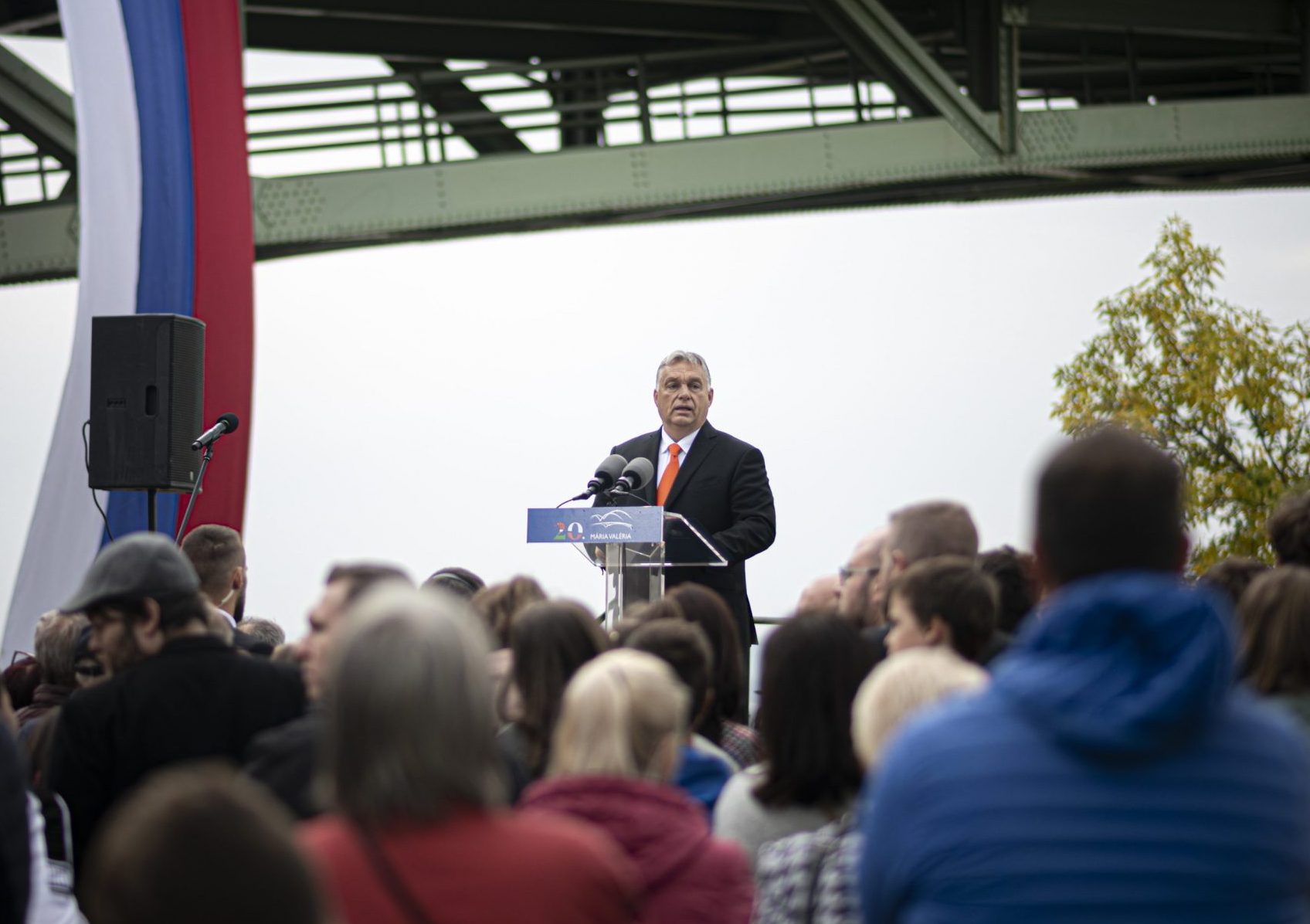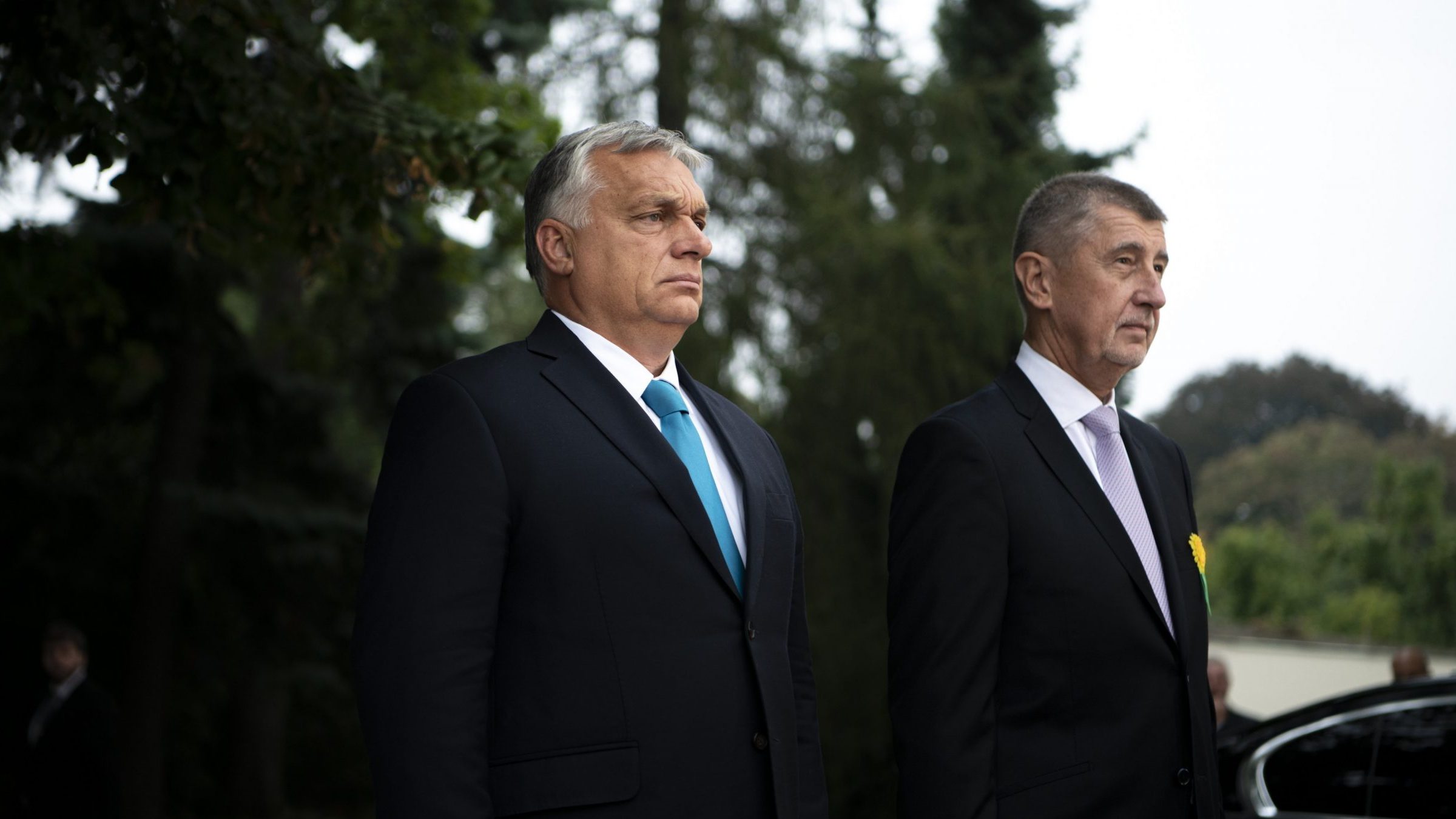
Allow me to welcome you all.
First of all, I am handing over the presidency to my friend Peter [Pellegrini]. To symbolise this, I am about to present him with this map. At this press conference I would like to make two related comments.
The first comment is that we’re very lucky that Slovakia is taking over the presidency, as in European politics I’m a rather old warhorse, and I’ve learnt that in the European Union the strongest argument is success. You can be good-looking, smart, or even young – but all that counts for very little. There is only one thing that counts in European politics: success and the capacity for success. And, over the past decade or so, one of the European continent’s greatest successes has been a country called Slovakia. What we need now is the leadership of a successful country. If you look at its per capita GDP, if you look at its unemployment rate, if you look at its development, you will see that in the period ahead the V4 will be led by one of the European continent’s most successful countries. This is a great thing – it’s good for us, and it’s also excellent news for the others. So my wish is that the Prime Minister can lead us at least as successfully as he and his predecessor have led Slovakia in recent years.
The second comment that I’d like to make at this brief press conference is that when one is in the maelstrom of everyday life, one does not see how the situation is changing: one cannot be both immersed in affairs of the day and looking at life from a distance. It is difficult, but if we step back to gain a wider perspective, we may clearly see that the Central Europe we live in today is not the Central Europe of even just a few years ago. This Central Europe is now Europe’s most successful region: this region has the highest economic growth; it has the strictest financial discipline; it has falling rates of government debt; this is where people are able to work, and where unemployment is low and continuously falling. At the same time, this region’s competitiveness is extremely high – compared both with EU and non-EU countries. So we have every reason and every right to hope that this region has a fantastic future ahead of it. And under the Slovak presidency we also expect to finally make some major Central European decisions – primarily in transport infrastructure, but also in other areas – which clearly symbolise this change, the change that has taken place in Central Europe. So I trust that we are about to embark on a fine, ambitious, successful presidency.
I wish my colleague every success.

